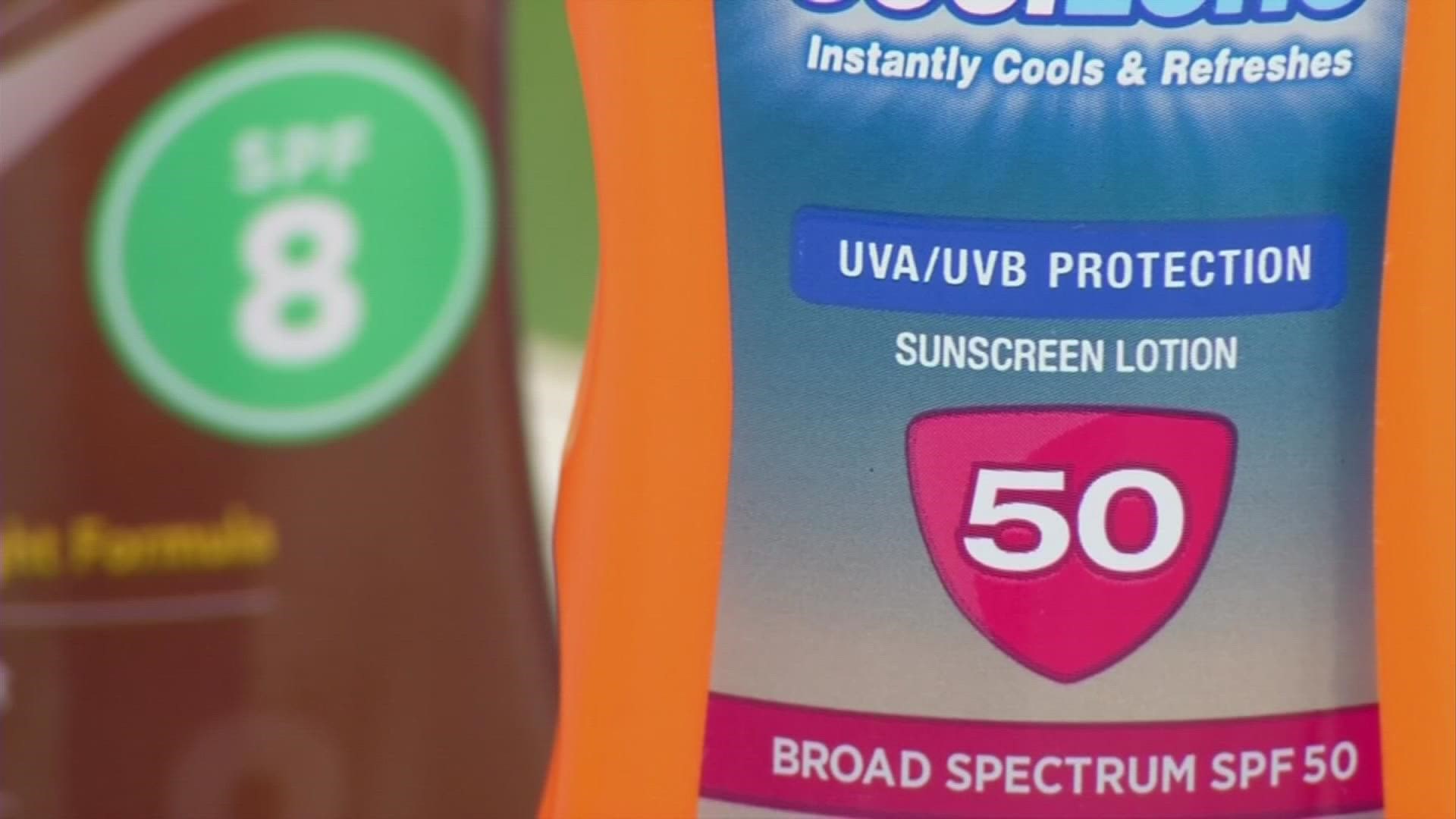COLUMBUS, Ohio — Last spring the voluntary recalls on sunscreens, mostly aerosol, started to make headlines. The items were pulled from the shelves and the cabinets after trace amounts of benzene were found.
Benzene is a known carcinogen and according to the National Institutes of Health has caused cancer in humans since the late 1920s. Data from the Food and Drug Administration shows links to human leukemia and exposure concentrations of benzene, it was calculated that a daily intake of two parts per million (ppm) were enough for lifetime excess cancer risk.
Nearly one hundred years later, we are seeing it contaminating sunscreens, hand sanitizers and deodorants.
Valisure is an independent laboratory, with a mission to check the chemical quality of drugs and consumer products before they reach patients and households.
According to, Valisure CEO David Light, benzene is a Class 1 Solvent and is in the human carcinogen category, alongside compounds like asbestos or formaldehyde.
“[It] absolutely should not be in consumer products,” said Light. “Benzene is also a solvent, so essentially a chemical used to make other chemicals and shouldn't be used, obviously, as the FDA says, but perhaps has been and perhaps hasn't been cleaned up very well from these kinds of gelling agents, or from all sorts of petroleum products. I mean, benzene contaminates gasoline, it is a known contaminant of the petroleum industry, to various creams, lotions or propellants.”
In May of 2021, Valisure came out with a report detecting high levels of benzene in popular sunscreen brands. Out of 69 companies tested, four batches of certain sunscreen had between 2.78 – 6.26 ppm of benzene, and 26 brands were 0.11 – 1.99 ppm.
“I'm personally shocked that we found so much of it,” said Light.
Benzene is not an active ingredient, it’s not even an inactive ingredient. So how is it winding up in products?
“We've seen it a lot in in spray products, recently," said Light. “Also hand sanitizers and sunscreens, lotions and sprays. But a propellant is oftentimes a fuel, it's propellants can be butane, or propane, that same gas you're using for your grill is also what sprays a lot of aerosol cans that you use. And that comes from the ground, benzene comes from the ground. If it's not properly cleaned up, then it could end up in the final product.”
Light said the FDA is not the governing body over chemical compounds, in most cases companies self-regulate their products and report it to government agencies.
“[The] FDA is inspecting facilities. That's even been difficult during COVID time, but when they inspect the facility, they're looking at the paperwork, they're looking at the facility itself, but they're not checking, or very rarely ever checking the chemical properties of that product,” said Light.
Light said consumers can take their health and safety into their own hands. Valisure has posted results and data for thousands of batches of products to its website that consumers can use to cross-reference before buying or while checking their medicine cabinets at home. They also could do some digging into their favorite companies.
“I think also the consumer can be, you know, vigilant on brands that are that are really trying to go that extra mile,” said Light. “Are they just relying on kind of the standard regulatory process? Or are they doing something to separate themselves as a clean or independently reviewed and validated? There's all sorts of badges out there these days, maybe look into what the badges mean.”

